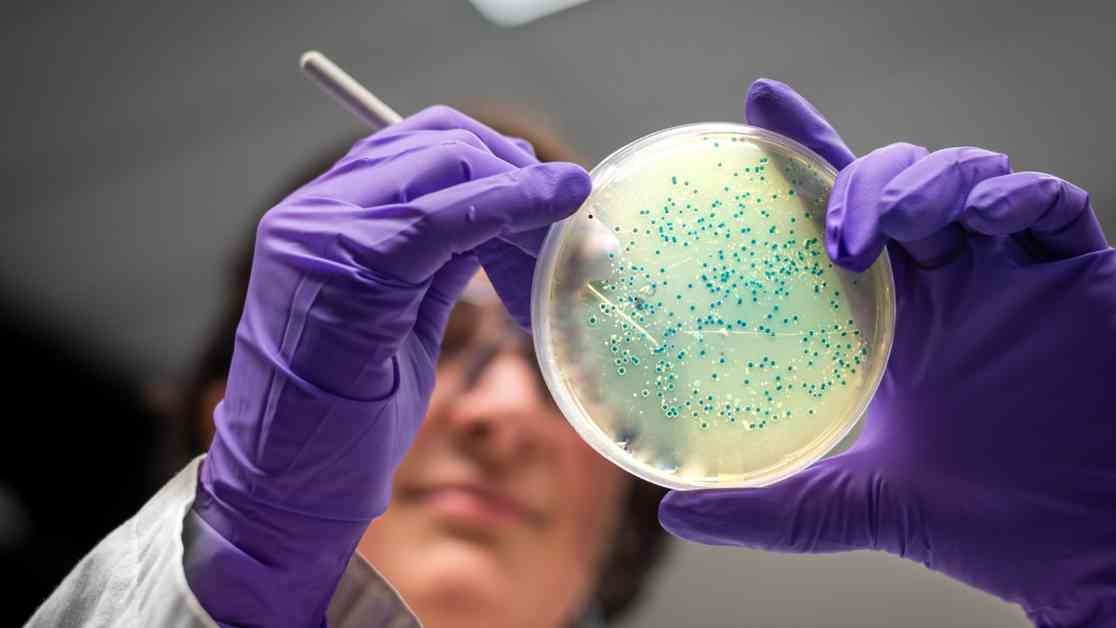Salmonella Bacteria Show Promise in Fighting Bowel Cancer
Recent research has shed light on a potential new treatment for bowel cancer involving the use of salmonella bacteria. While traditionally known for causing food poisoning, salmonella has shown promise in combating cancer by preventing the body’s immune cells from attacking the disease.
The study, led by a team of researchers, revealed that salmonella could be genetically modified to enhance the body’s T cells’ ability to target and kill cancer cells. This breakthrough came after discovering that salmonella inhibits T cells from effectively fighting cancer by depleting an essential amino acid known as asparagine.
Dr. Alastair Copland, the first author of the study and a research fellow in immunology at the University of Birmingham, expressed optimism about the findings. He emphasized the potential of transforming a disease-causing bacteria like salmonella into a cancer-fighting agent, highlighting the significance of this innovative approach in cancer therapy.
Moreover, Dr. Catherine Elliott, the director of research at Cancer Research UK, which sponsored the study, hailed the research as an exciting development. She noted that the findings could pave the way for more effective treatments for patients with colorectal cancer and other cancer types, offering hope for improved outcomes in cancer care.
Bowel cancer, with over 44,000 new cases reported annually in the UK, ranks as the fourth most common cancer. The potential implications of using salmonella in cancer therapy could have a significant impact on patient outcomes and treatment efficacy in the future.
Salmonella bacteria are commonly found in the gastrointestinal tracts of various animals, including chickens, cows, and pigs. Contamination of food products such as eggs, chicken, pork, and produce can occur through contact with infected livestock or exposure to animal waste.
Symptoms of salmonella infection typically include diarrhea, stomach cramps, nausea, vomiting, and fever, manifesting within 12 to 72 hours of exposure and lasting for several days. It is essential to handle and cook food properly to reduce the risk of salmonella contamination and subsequent illness.
The study, which was published in the journal EMBO Molecular Medicine, adds to the growing body of research exploring innovative cancer therapies. By harnessing the unique properties of salmonella bacteria, researchers aim to unlock new treatment possibilities and improve patient outcomes in the fight against cancer.




